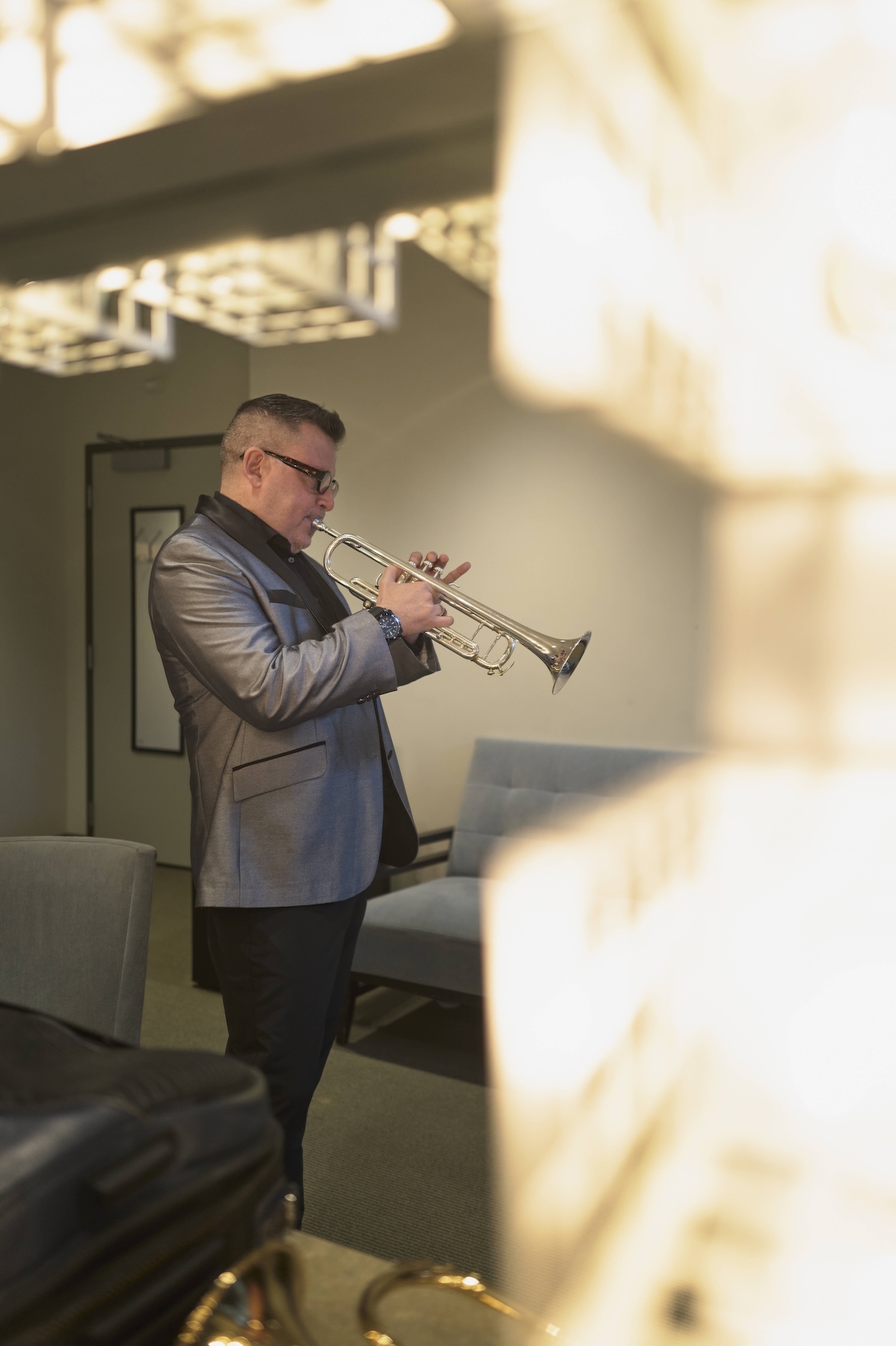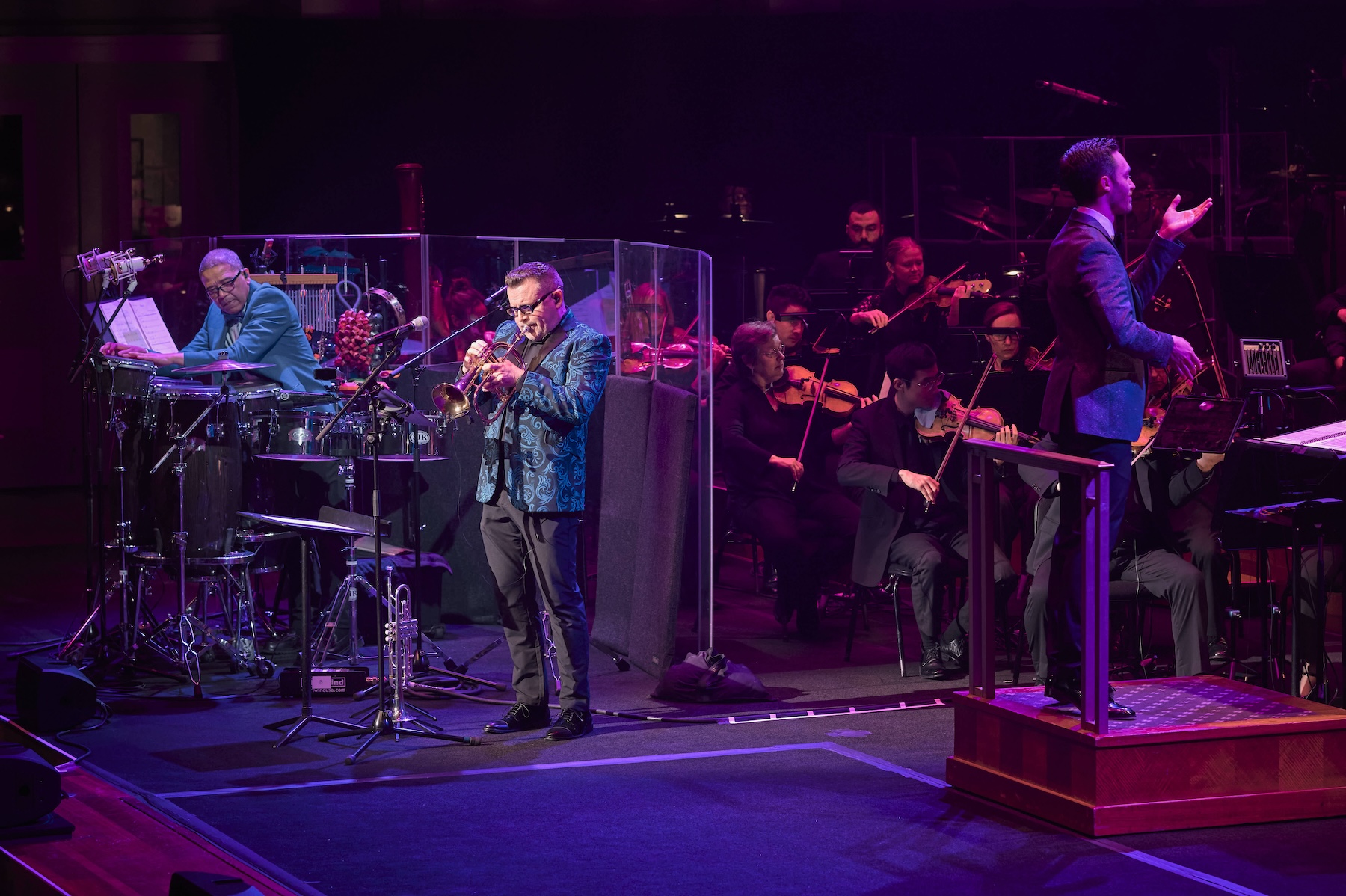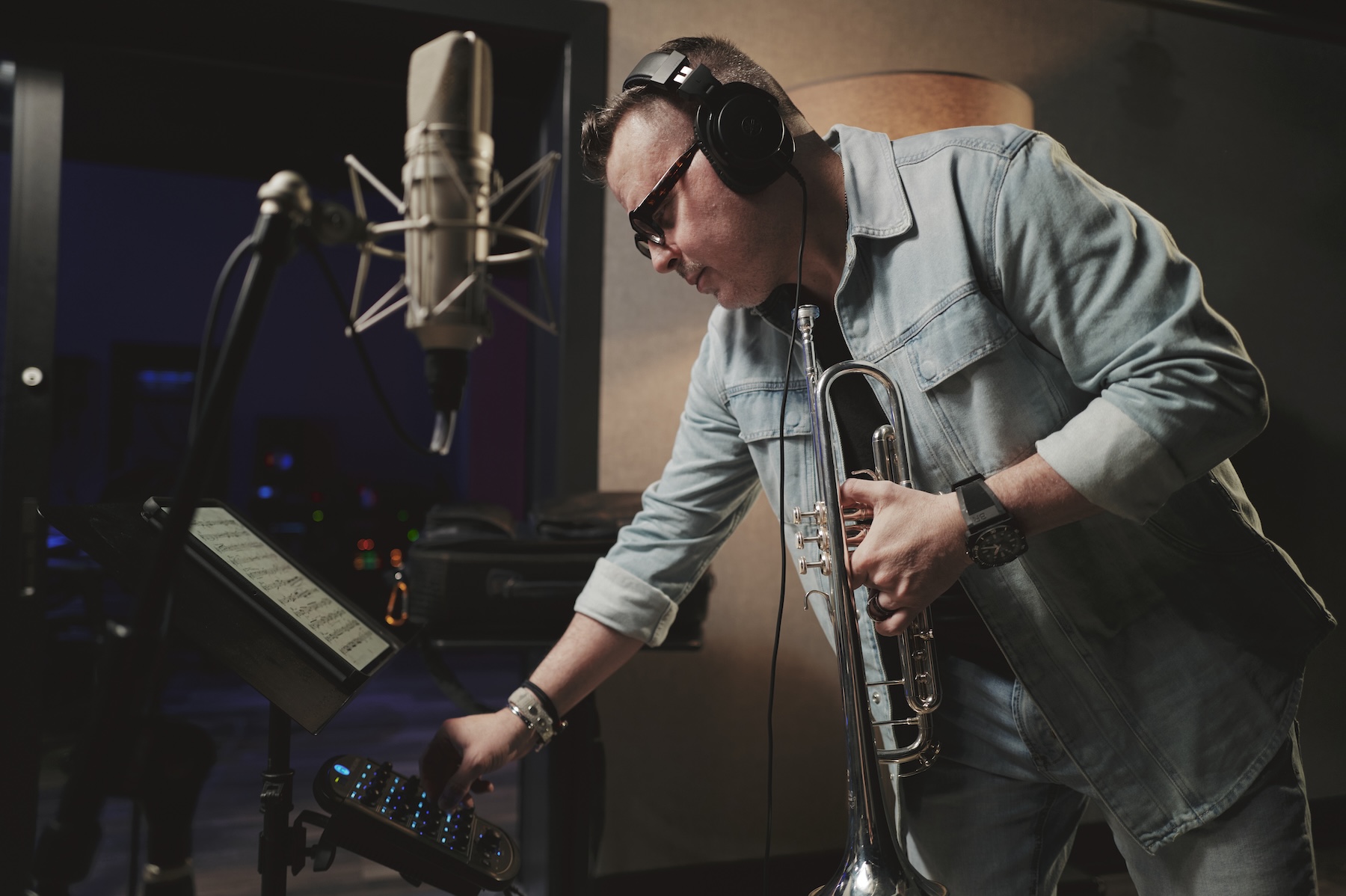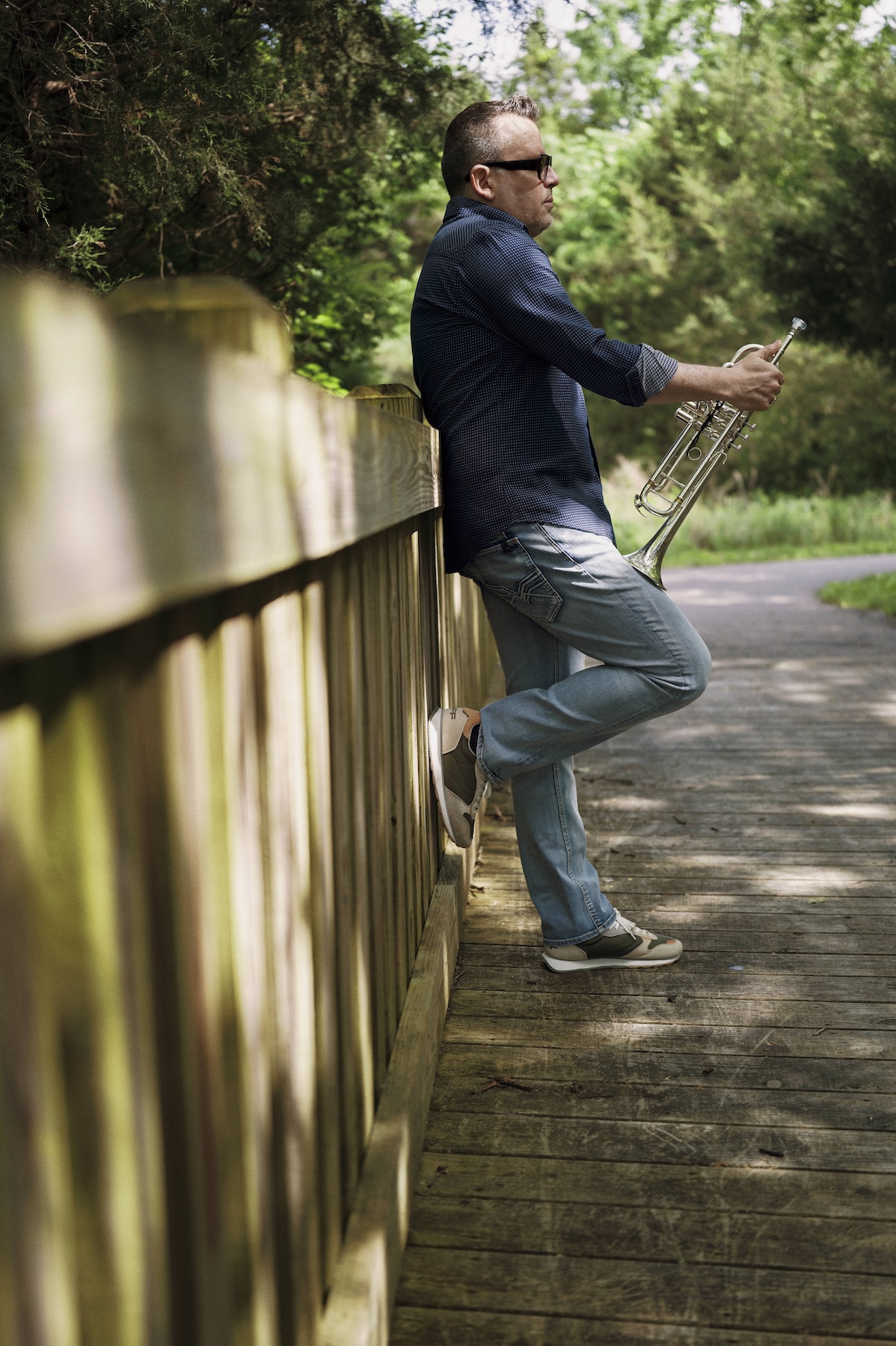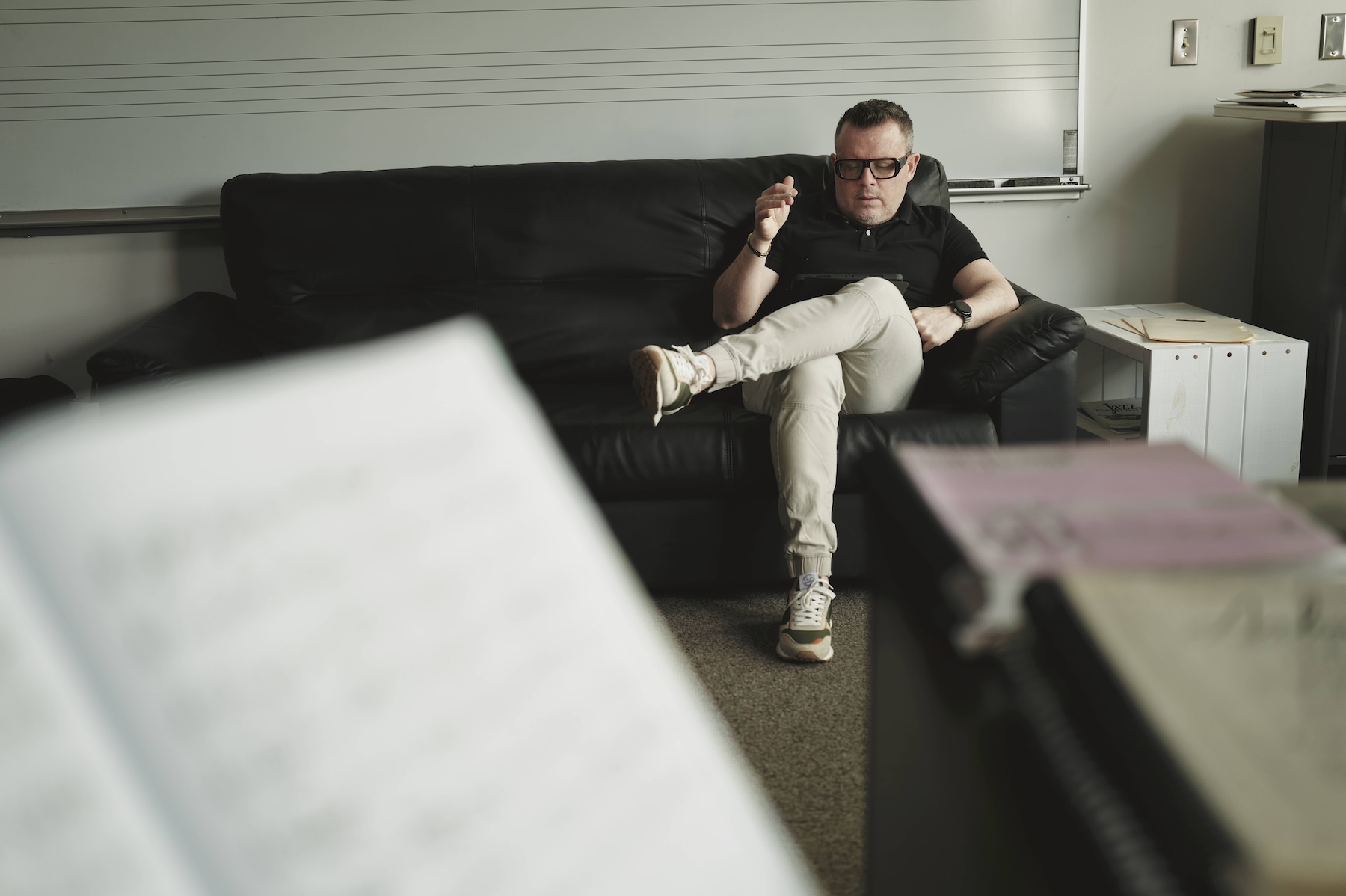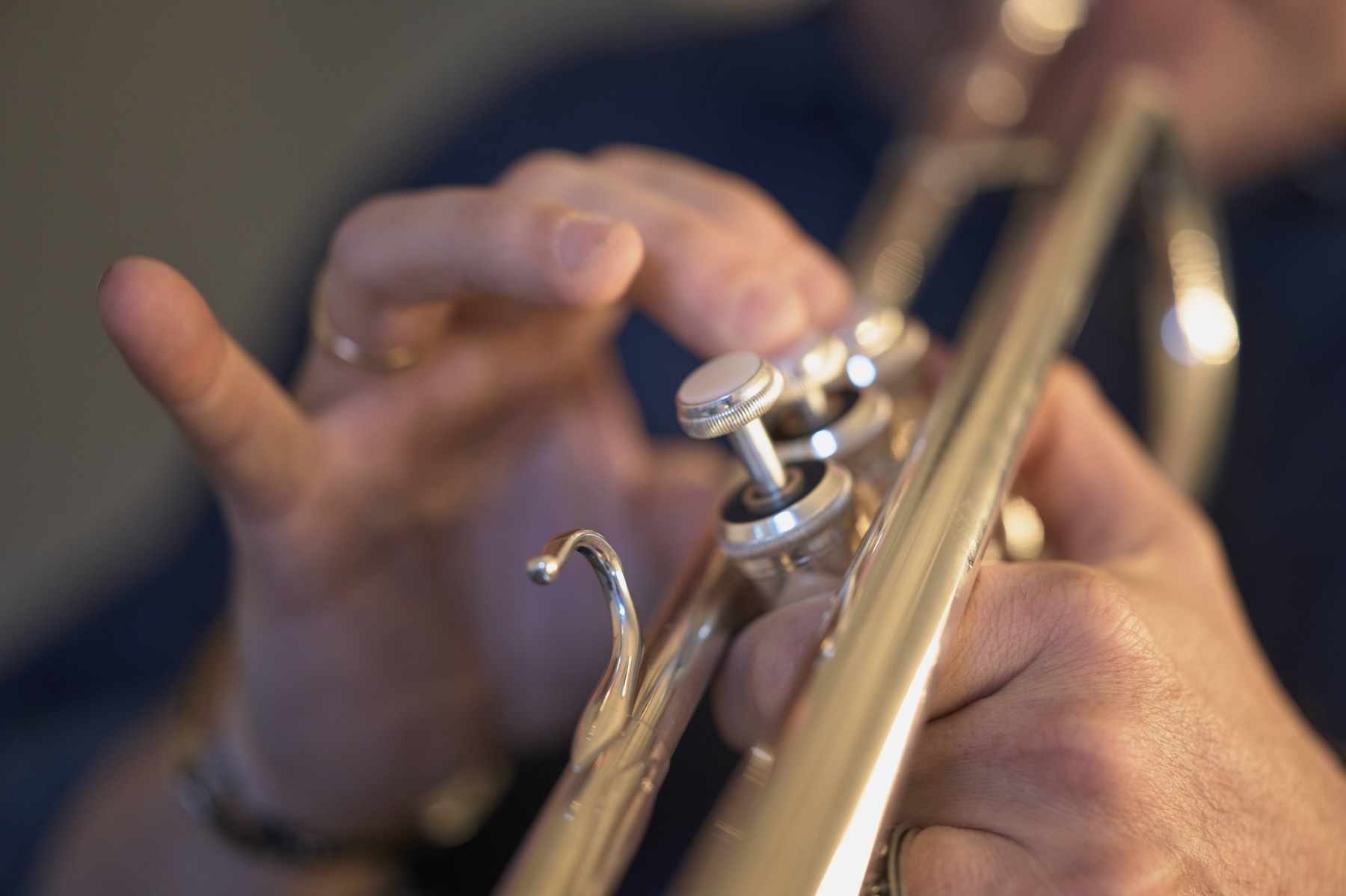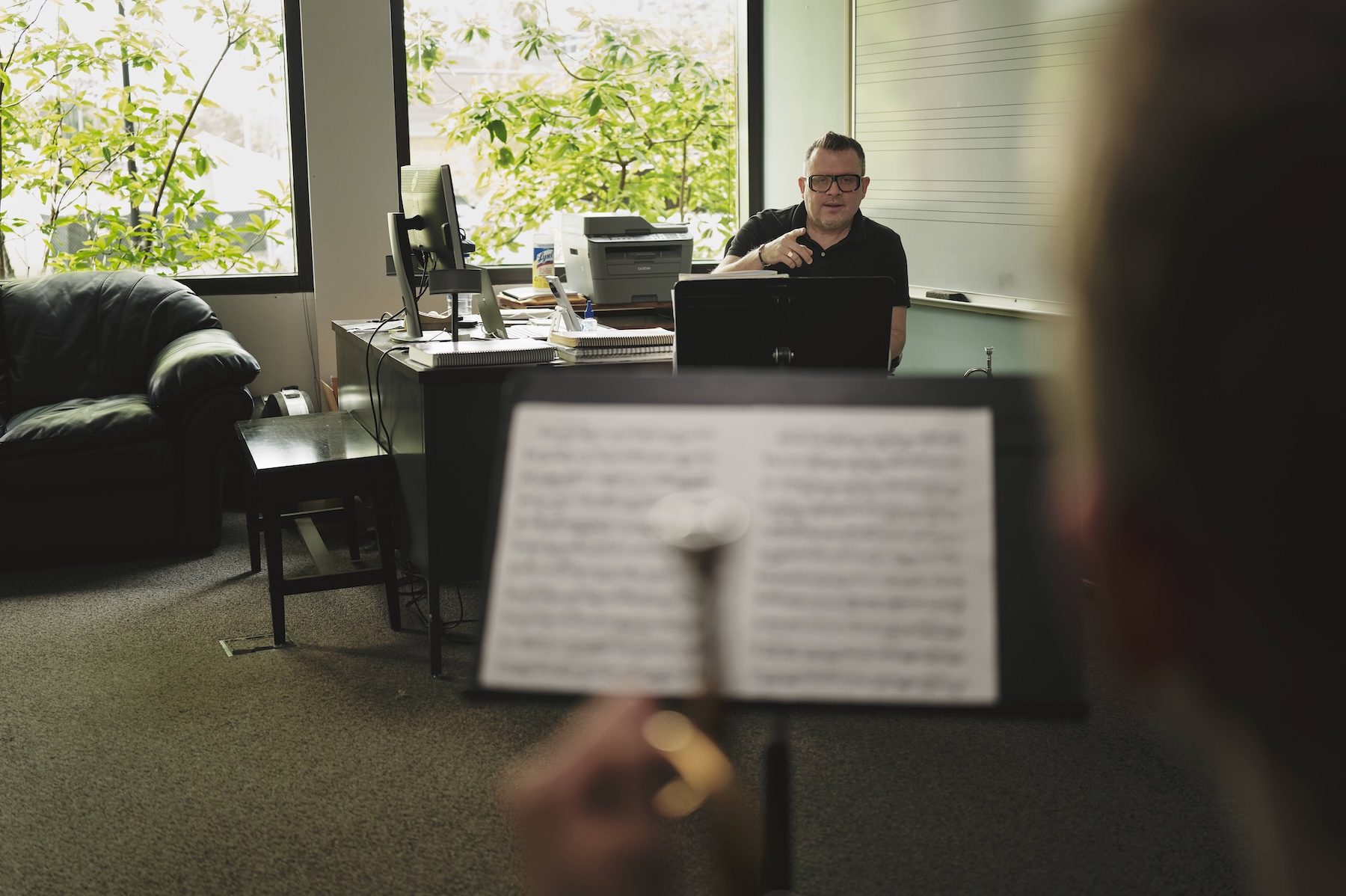José Sibaja
Radiating Warmth: José Sibaja
Radiating Warmth: José Sibaja on transcending fundamentals and formalities to keep music alive
Written by Lisa Battles
Warmth radiates through every part of acclaimed trumpet player José Sibaja, from his music to his mindset. Rooted deeply in his Latin American heritage and with decades of rich experience, he champions humanity, humility and humor.
An 18-year member of Boston Brass, the Costa Rica-born Sibaja has played as an international soloist with many major symphony orchestras and wind ensembles, teaches master classes worldwide and is an associate professor at Blair School of Music in Nashville, Tennessee.
Training the ear and mind
While Sibaja instructs students on fundamentals, he says his greater goal is to show how mastering them is the starting point for greater possibilities in their artistry and life.
“We’re going to be as good as we are able to hear, and I think that also applies to life. We’re going to be as wise and empathetic as we’re able to hear and listen to others,” he says.
Deep values for inclusion and accessibility form the core of Sibaja’s philosophy, driving his approach to make music more relatable, human and open. He believes music loses its magic when it becomes elitist or detached from everyday people and was always meant to transcend cultures and socioeconomic status.
“Music has always been created and played for celebration or communication. We made it serious … Music didn’t start happening in the music hall. We did that. Music was always either a song or a dance. You were trying to enamor somebody or celebrate the fact that you were with people, together,” Sibaja says. “And then to go way earlier, when we had only singing and percussive noises, those were used to communicate between tribes. We were the ones who made it serious with all our expectations in life.”
“The word ‘expectation’ in my life is very important. I try to keep my hopes really big but my expectations low with everything. So I think that gives me an edge on being relaxed. In my opinion, expectation is the number one enemy of a healthy relationship, be it humanly or musically.”
This idea permeates everything Sibaja does. Whether he’s in a concert hall, an intimate gathering or teaching a class, he aims to resonate with people in ways that connect them to a greater awareness of being, no matter their background.
Early life influences in Latin America
Sibaja says his experience growing up in Costa Rica and early adulthood in Miami and Venezuela shaped his perspectives on music and how it resonates across different cultures and classes of society.
“I am a true believer that music is made for inclusion and for unity,” he says.
It all began for him at age 13, when he fell in love with the trumpet sound in the Latin music that filled his childhood home. He picked up the instrument and started his training at the Youth Program of the National Symphony Orchestra in Costa Rica. Eventually, he earned a scholarship to the University of Miami to study classical music. He pursued his studies there for two years before taking the opportunity to become the principal trumpet player in the National Symphony Orchestra of Venezuela.
He stayed with the orchestra for two and a half years before venturing more into commercial music and recording, which took him to New York for a while. Then December rolled around.
“I was recording a really late-night session in Manhattan. I went down to the subway, and it was two in the morning. The train was late. I was freezing. Right then, I made the decision that was not for me. I had to go back to Miami,” Sibaja says.
Another important factor in his decision to return was mentor and professor Gil Johnson at the University of Miami.
“He helped me understand how important your work ethic is, not only for music, but just in general in life, and if I accomplish anything, or not. I am blessed that way a lot because of him. Not only musically speaking, he really took me under his wing and shaped me literally to have a work ethic,” Sibaja says. “Talent is nothing. You can be the most talented person in the world, but if you don’t work, nothing happens.”
Dancing between classical and commercial worlds
Back in Miami, Sibaja got to work, re-entered school, picked up recording projects, played principal in the Miami Symphony and the Palm Beach Orchestra, and took on some commercial music work. Local connections led him to Ricky Martin, whose band he joined at around age 24.
Off he went touring the world for about a decade, while also recording with Martin and other famous Latin artists, including Alejandro Sanz, Gloria Estefan, Celia Cruz, Luis Enrique, Rey Ruiz, Marc Antony and more.
During this time, Sibaja did a stint with Dallas Brass, a quintet experience that piqued his interest when he learned of an opportunity with Boston Brass. He auditioned, won the spot and has been with the group ever since, touring and supporting its mission to perform great music while also “leaving a footprint” wherever it goes, Sibaja says.
Dancing between the classical and commercial music worlds was not something he imagined for himself in the first few years of learning his instrument, he says. His mental shift about it happened around age 16, when he attended a concert by Mexican artist Luis Miguel.
“Until then, all I wanted to hear was classical music. A friend of mine invited me to go, and I didn’t want him to go alone. I wasn’t into it [but] once I got in there and the band started playing, I was like, ‘Whoa, whoa, wait, wait, wait! There’s more to this dude than I thought there was going to be!’” Sibaja says. “And then, of course, he’s one of the most incredible singers you’ll ever hear in your life, and the band was sounding great. That day, my perspective on music changed. I was really happy.”
Another amazing influence on his early non-classical musical discoveries was the Cuban band “Irakere” and one of his trumpet heroes, Arturo Sandoval.
“Music with that much soul and honesty is an experience hard to recreate, but immensely rewarding and transformative. When I first heard Arturo play, I was in awe and didn’t know you could do that with a trumpet. The fact that he played the trumpet like that, that he spoke the same language I spoke, and that he came from a small Latin American country, was a big boost of inspiration, hope and energy for me as a young musician.”
Discovering both artists taught him huge lessons about not boxing in or stereotyping oneself or others, and how suspending that kind of judgment can lead to satisfying personal discoveries and uniting people, he says.
Passing along a mindset
Even with a relentless work ethic, Sibaja prizes authenticity over perfection, doesn’t take himself too seriously, and strives to pass those values to others through his teaching opportunities.
“Music has to be sincere. We are not here to be perfect, and nobody’s perfect. So if my aim is to be perfect, I am missing the point, and my music becomes stiff and contained. I want to be as human as possible with music. If I make mistakes, as long as people are enjoying themselves and having a good time, it’s OK. I think that’s our job. That’s the most important thing to me,” he says. “And I want to bring that to students, [the knowing] that they have a license to make a mistake. When we give freedom to our minds, the way we perform improves dramatically, and we start being ourselves. In my opinion, that’s what you need in music.”
When asked what gets him up in the morning, Sibaja’s answer is simple: the blessing of being able to make music. As for what helps him sleep well at night, it’s his commitment to how he goes about it.
“I just want to be remembered as a fun person. That’s it. Hopefully, I can contribute something positive to your life. If I happen to play the trumpet a certain way and you remember that, that’s great. I would love it if when people think of me, it brings a smile to their faces,” Sibaja says. “To me, that’s much more important or transcendental than people thinking that I was smart or I was a virtuoso or if I was this or I was that … It’s a lot about respect, respecting others, respecting people and staying true to who you are.”
The Three440 Artist Story Series takes you beyond the spotlight and into the real lives of Yamaha Performing Artists. Each story is a window into the creative process, pivotal moments, setbacks and victories that define an artist’s path.
STAY IN TOUCH! SIGN UP FOR THREE440 STORIES
Three440™ is a trademark of Yamaha Corporation of America.









